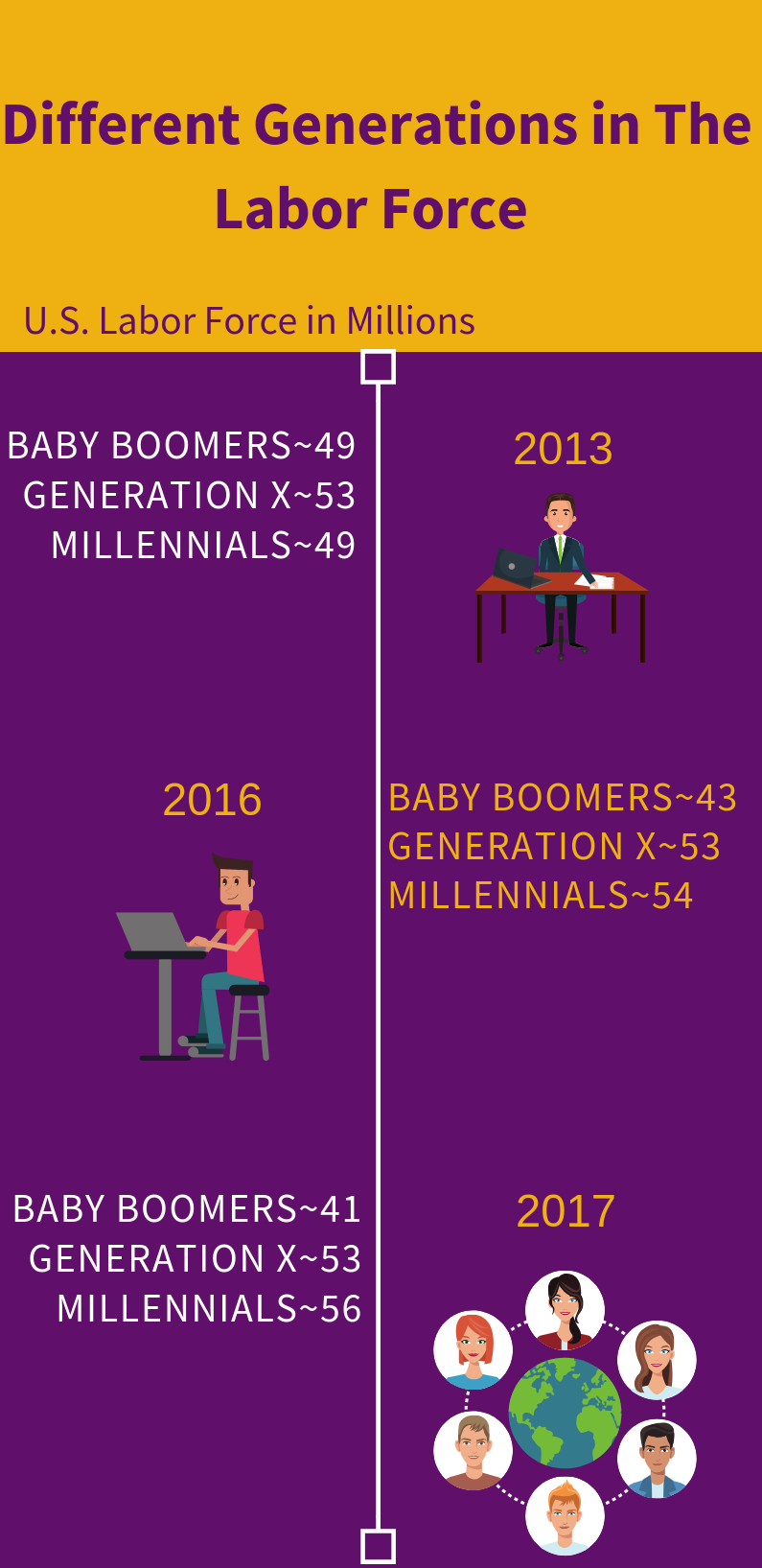The Millennial Shift in Today’s Workforce

A generational shift in the workforce is happening now. Generation X is passing the baton to Millennials who now hold 20% of all leadership roles. According to the Pew Research Center analysis from the Bureau of Labor Statistics, Millennials are quickly surpassing Generation X and make up 35% of the workforce. In the most recent study conducted in 2017, 56 million Millennials were reported to be employed or seeking employment compared to 53 million considered to be Generation X. 
Over the past few years, more and more Millennials are joining the workforce and with their leadership influence, they are impacting change in our current work environments, such as new policies and added values, including out-of-the-box benefits.
With the percentage of Millennials in leadership roles expected to grow within the next year, the Millennial generation is redefining leadership tactics, influencing change. In a recent study analyzed on Forbes, generational differences in the workplace were collected and reported. CFO’s were asked “In which one of the following areas do you see the greatest differences among your company’s employees who are from different generations?” CFO’s reported seeing a 30% difference in communication skills amongst Millennials compared to past generations regarding open communication and the willingness to collaborate with colleagues.
While past generations have been perceived to be more reserved in their communication styles, Millennials have been leaning towards a more collaborative, face-to-face means of communication. According to this Forbes article, “This is consistent with other studies showing that millennials, overall, relate far better to a coaching style of management than to a more traditional top-down authoritative approach.”
Another notable difference is the need for Millennials to assimilate their own cultural needs with their companies’ needs. According to Deloitte’s seventh annual Millennial survey, Millennials reported their top three priorities. culture ranked at 52%, making it second in their top priorities. Millennials view a company’s willingness to give back to the community as a major factor in continuing employment with them. With company culture being one of the top priorities, 43% of Millennials envision leaving their company within two years if their culture expectations aren’t met.
Millennials are also changing the idea of a typical work schedule. Many companies are now shifting from sitting in an office for 40 hours to working from the comfort of their own home or stepping out of the office for a few hours. Although Millennials are still seeking traditional benefits, they’re also looking for incentives and perks. Insider recently released “16 Mind-Blowing Job Perks that Real Companies Offer.” Companies like Airbnb, Reebok, Google, Genentech, Netflix, and Eventbrite are changing the ways Millennials look for jobs. These companies and others have perks ranging from free meals to full, on-site gyms and free crossfit classes. Because companies may already be catching on to these trends, today’s workforce may be seeing an even bigger shift toward a more relaxed environment and schedule.
Millennials are slowly transitioning today’s workforce by challenging employers to redirect their focus on leadership styles and the everyday work environment. Companies are now designing benefits with mental and physical health in mind to meet the everyday needs of working Millennials. Just like past generations, Millennials are planting new and different ideas for generations to follow. Although some of these changes might not occur overnight, these are the trends that might be seen for years to come.These generational differences may eventually require companies to evaluate the needs and priorities of Millennials in order to retain the new workforce majority.


